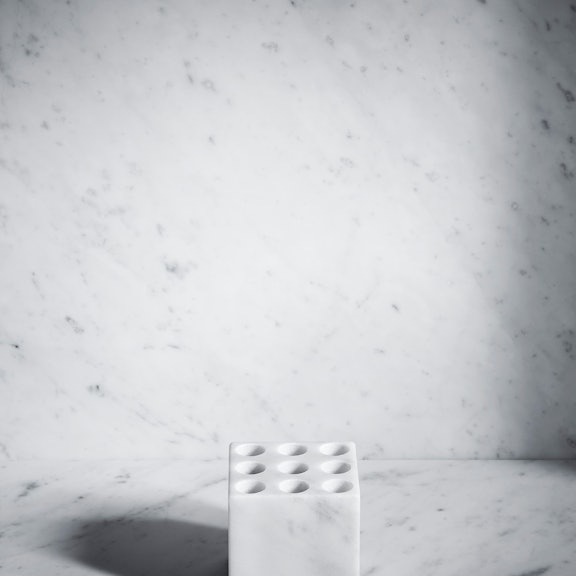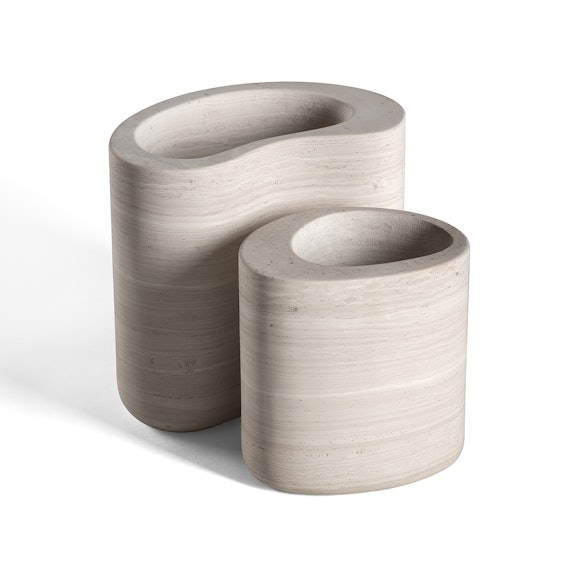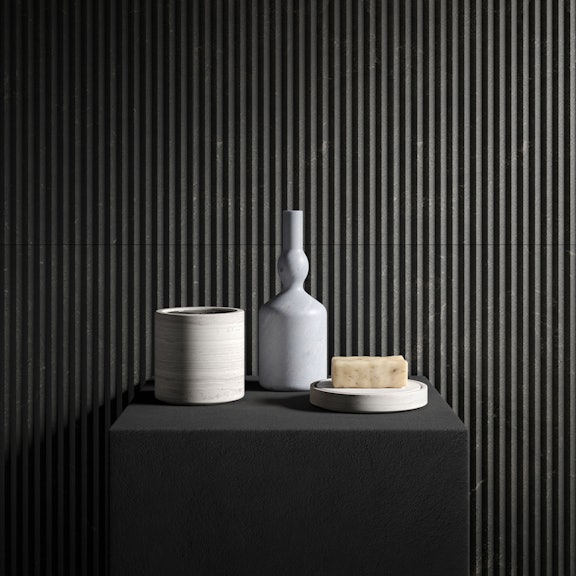How innovation is changing the world of designer tapware
07.2022
Discover all you need to know about designer taps and how our Spaghetti tapware collection is changing expectations and aesthetics
All you ever wanted to know about designer tapware
For some years now, design has also infiltrated the world of tapware, causing a rethink and redefinition of the aesthetics of what had previously been considered a largely prosaic, necessary but boring item. In this article, we take a look at what we mean when we talk about design applied to tapware, some of the materials you can expect to find, the main categories and examples of it in situ.
.jpg?fp-x=0.5&fp-y=0.5&auto=format&w=720&h=540&fm=jpeg&q=70&fit=crop)
How to choose designer tapware
Choosing your tapware is an important decision and one which is often underestimated during a bathroom or kitchen makeover. It should reflect personal taste, work with the design of other fittings and hardware and above all, this is a purchase that needs to be made in advance and after checking it is compatible with other elements. For example, modern taps are not always going to work in a classic bathroom, while a traditional-style tap or shower head risks looking completely out of place in a contemporary bathroom.
So, in summary, when we talk about designer tapware, the fundamental aspects to consider are:
- Materials and types
- The space they will be installed in
With that said, let’s take a look at each of these points in more detail.
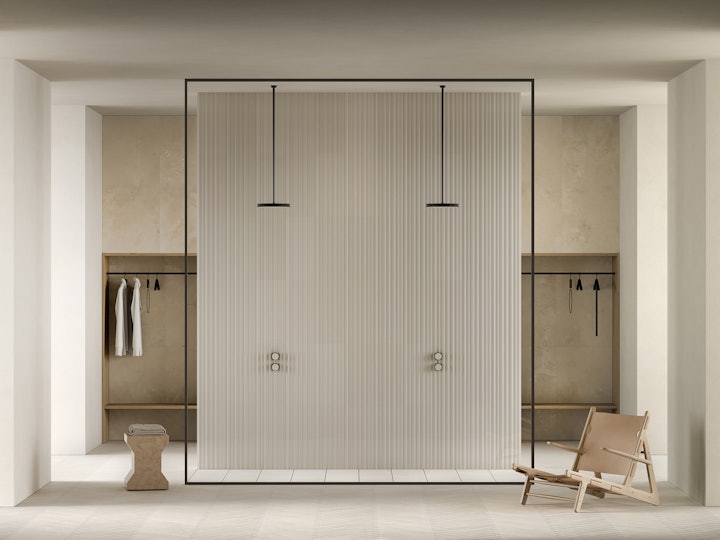
Designer tapware: materials and types
Regardless of the environment they will be installed in, there are two main types of designer taps:
- Deck-mounted tapware
- Wall-mounted tapware
Of the two, deck-mounted taps tend to be most common. These are installed directly onto the basin or vanity unit, whereas wall-mounted taps, as the name explains, are fixed to the wall. This often means the water flows out in a waterfall effect and this makes for a striking visual impact, both in terms of the water and the tap itself.
Of course, each of the two types come in an enormous range of styles across a broad spectrum of tastes and requirements. If you are a minimalism fan, for example, you would probably opt for pared-back taps with clean, maybe even squared, lines. If, instead, your tastes tend towards modern, but with a vintage feel, there are plenty of curved taps to choose from, with more traditional, softer lines.
In addition to the various types of taps available, you also need to understand the main materials designer tapware tends to be made in. Typically, the more minimal styles will be in stainless steel, whereas vintage-look taps often come in a variety of coloured finishes, for example brass-look or even copper.
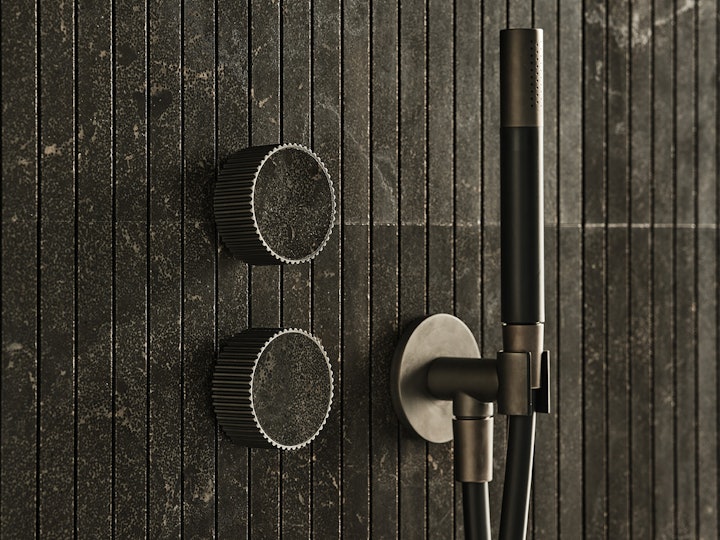
Where to use designer tapware
The choices of taps on the market today may be overwhelming, but when it comes down to it, they are mainly used for two rooms, ie the kitchen and bathroom (although you could add the laundry room to that). Then of course there are specific aspects to consider, such as short or long spout, lever or knob, but this is entirely down to personal preference.
On this note, it is important to think about how handy or easy it is to use, whether we are talking about taps for the shower, bathroom basin, bathtub, bidet or kitchen sink. As such, you should consider the following two elements:
- The position of the attachments
- The type of mixer
The position of the attachments determines, to a certain extent, the style of tap, whereas the mixers will impact consumption and here we have three different types: electric, thermostat and knob.
_new.jpg?fp-x=0.5&fp-y=0.5&auto=format&w=720&h=960&fm=jpeg&q=70&fit=crop)
The Spaghetti designer tapware collection
As a company, we have also been caught up in the allure of designer tapware. Our love of luxury, function and form led to developing Spaghetti, our first-ever complete range of designer tapware and fittings for the kitchen and bathroom.
Applying a level of precision engineering generally associated with watchmaking to the world of tapware, we pushed the boundaries to create a collection that represents a new landmark. Designer Elisa Ossino brings her trademark ethereal elegance to create a modern, minimalist post-modern look that is striking yet delicate.
Metal and natural stone come together in harmony. The metal is finished with a PVD coating, making it more hardwearing than more traditional alternatives while the knob of each tap consists of a disc of stone, available in a choice of six colours. This means that if you have a tiled wall, you can choose the same stone for your taps and they almost merge into one another, for a supremely harmonious and discreet aesthetic in your bathroom or kitchen.
The innovations don’t stop here, however, as the big news is the design of the mixer’s cartridge. Traditionally, this has a diameter of between 28 and 40 mm and can sometimes create a somewhat chunky look. With Spaghetti, it is just the opposite, as we tore up the rule books and developed a cartridge with a diameter of just 20 mm, making for a slender, elegant optical effect.
So, that’s our look at how design can be applied to tapware and transform a somewhat pedestrian product category into a defining décor element. We have tried to keep things simple with an overview of the main points to consider, but if you have more detailed questions or would like to know more about our Spaghetti collection, please get in touch. Our team of design consultants will be delighted to help.
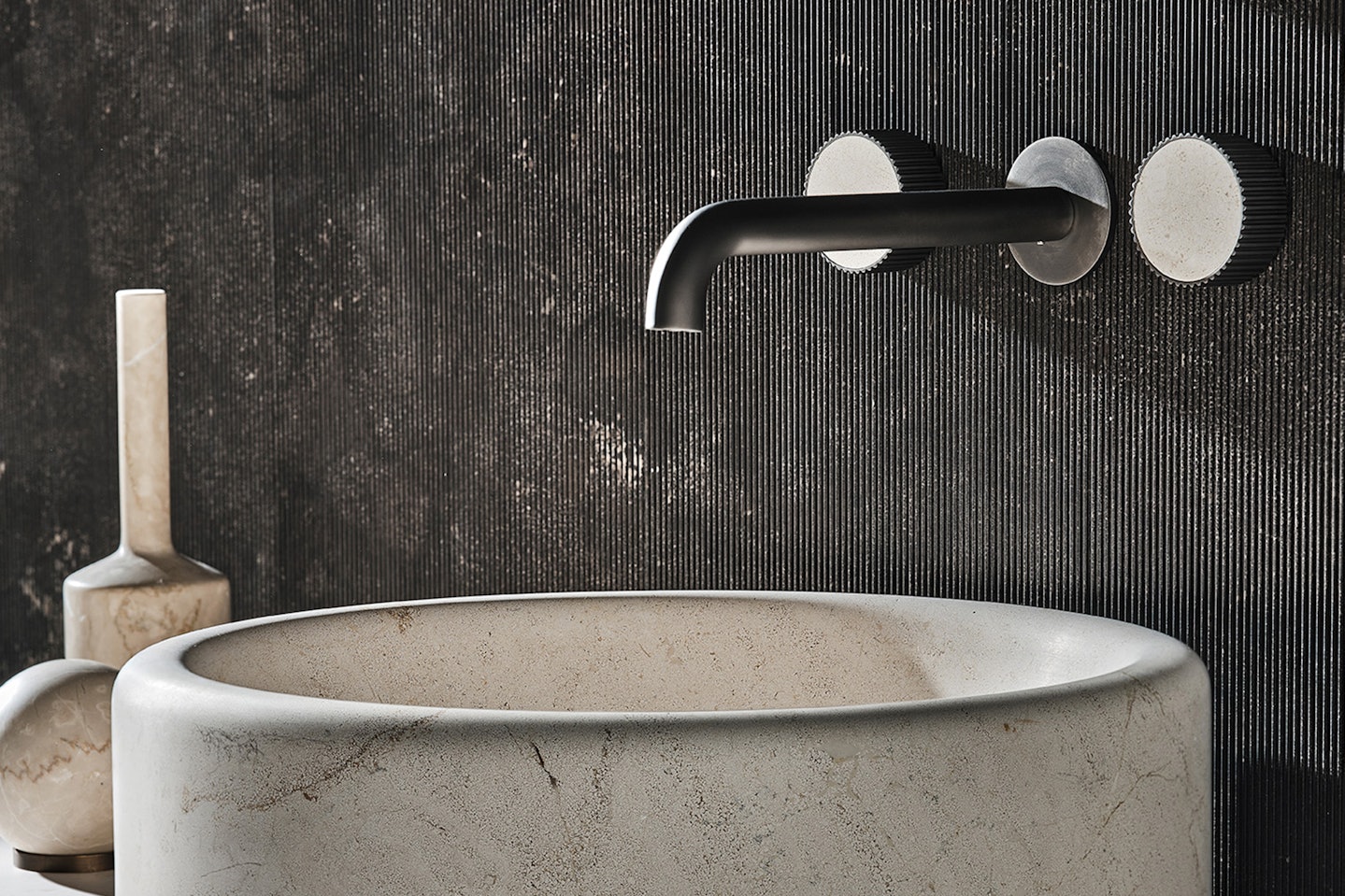
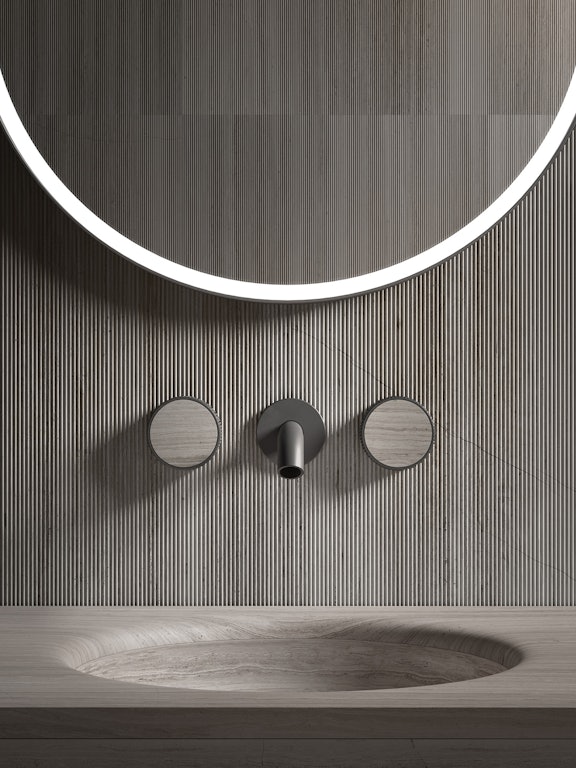
_new.jpg?fp-x=0.5&fp-y=0.5&auto=format&w=576&h=768&fm=jpeg&q=70&fit=crop)
